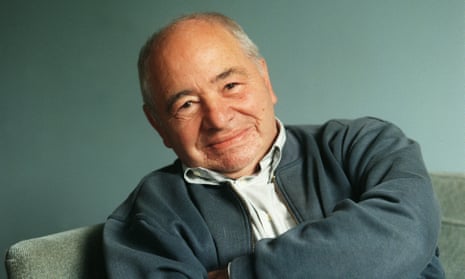Colin Dexter, the author behind detective Inspector Morse and his adventures solving mysteries in Oxfordshire, has died at the age of 86, with the top names in crime writing lining up to pay tribute to a “a kind, generous man”.
Dexter’s death at his home in Oxford was announced by his publisher Macmillan on Tuesday. Val McDermid, who was a good friend of Dexter, described him as “a lovely, lovely man” and not as grumpy as his creation – “though he did share Morse’s love of music”.
“Early on in my career I told him I was nervous about how to write police procedurals and he said, ‘Well, my dear, I had written five Morse novels before I had even set foot in a police station.’ He had great sense of humour,” McDermid told the Guardian.
Author Lee Child described Dexter as “revolutionary”. “He wrote a character without any concessions at all to likely popularity – Morse was bad tempered, cantankerous, esoteric and abstruse – and thereby showed us that integrity and authenticity work best,” Child said. “His literary descendants are everywhere. When our genre’s family tree is drawn, he’s the root of a huge portion of it.”
Author Peter James said “all of us who love crime fiction owe Colin Dexter a very great debt”.
“There are few writers of whom it can be genuinely said that they changed – or indeed created – a genre. But Colin Dexter did. Morse was unique, both in the pages of the novels and in the subsequent television adaptations,” James said. “In many ways he mirrored characteristics of Sherlock Holmes, with his fierce brain and quiet nature, and. like Holmes, he came off the page and stepped out of our screens to become a living person, someone any of us could imagine meeting for a drink in a pub.”
Dexter’s 13 Morse novels, which were written between 1975 and 1999, sold millions, and were adapted into a hugely popular television series starring John Thaw as the detective. Dexter’s writing also spawned spin-off TV shows, Lewis – following Morse’s longtime companion – and Endeavour, about Morse’s early days on the police force.
Actor Sheila Hancock, who was married to Thaw until his death in 2002 and played a guest role in Endeavour, called Dexter “a sweet, gentle, erudite man”.
“Colin seemed to thoroughly enjoy being involved in the programme, making Hitchcock-like appearances and hanging out with the cast and crew,” she said. “I think he was deeply fond of both Kevin [Whately] and John. As they were of him.”

Born Norman Colin Dexter in Lincolnshire in 1930, Dexter began his writing career by writing text books while working in education. After retiring from a 13-year teaching career due to deafness, he decided to write a crime novel while on a rainy holiday in Wales with his family in 1972. Bored with the novel he was reading, Dexter decided he could do better.
His debut, Last Bus to Woodstock, arrived on shelves in 1975. It was a sleeper hit, but the series eventually took off, in part due to his main character Inspector Morse, a curmudgeonly detective who liked ale, crosswords and Wagner – sharing many of his creator’s interests. “He’d no time for reports,” Dexter wrote of Morse, in Last Bus to Woodstock. “He suspected that about 95% of the written word was never read by anyone anyway.”
Dexter killed off his famous detective in 1999’s The Remorseful Day, to great sadness among his fans worldwide. In an interview in 2000, he told the Guardian: “I started with him 27 years ago, and I miss the old boy more than most people. I get lots of letters saying, ‘It’s terribly sad’; ‘You’re terribly cruel’; ‘Why did you do it?’”
In 2000, Dexter was given an OBE for services to literature and in 2001, was awarded freedom of the city in Oxford, where all his Morse stories were set. He also won four CWA Dagger awards, as well as the Diamond Dagger – the highest honour in British crime writing – and the Theakston’s Old Peculier outstanding contribution to crime fiction.
Dexter refused to write a memoir, and would not allow anyone else to write a biography while he was still alive. “I’ve had such a lot of luck, I don’t want to risk having someone ridiculously ill-informed doing it,” he told the Guardian. “I think it should wait till you are dead. And when you’re dead, everyone forgets you anyway, if you write crime fiction.”
“Colin was an author who inspired all those who worked with him,” said Maria Rejt, his most recent editor. “His loyalty, modesty and self-deprecating humour gave joy to many. His was the sharpest mind and the biggest heart, and his wonderful novels and stories will remain a testament to both.”

Comments (…)
Sign in or create your Guardian account to join the discussion